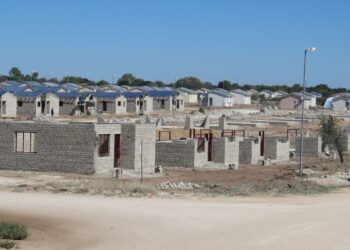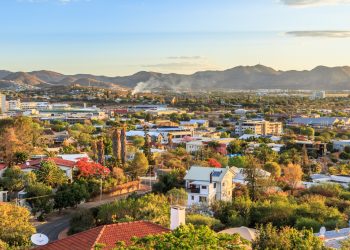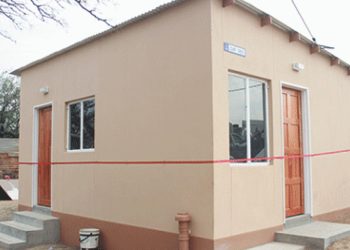
The City of Windhoek (CoW) has been awarded an N$8.8 million grant to power 50,000 homes in informal settlements with solar electricity through the Urban and Municipal Development Fund (UMDF).
The move by the African Development Bank’s UMDF is part of the “Informal Settlement Renewable Electrification and Upgrading Programme” of the city, which will directly benefit about 200,000 people in Windhoek, where 20% of the population lacks access to electricity.
“The African Development Bank’s Urban and Municipal Development Fund (UMDF) has approved a grant of N$8.8 million (US$485,000) for a solar electricity project in Namibia that will power some 50,000 households in the capital city,” the AFDB announced.
Mike Salawou, Director of the Infrastructure and Urban Development Department said with the new project, the UMDF is expanding its support to southern African countries and diversifying the range of supported sectors.Â
He further highlighted that electrification will now be included in its portfolio of more than 20 urban development projects.
“The project is strongly aligned with the African Development Bank’s top five priorities, in particular, to light up and power Africa, improve the quality of life for the people and industrialise the continent,†said Salawou.
In Windhoek, one consequence of rapid and uncontrolled urbanisation is the rise in informal settlements, characterised by non-electrified neighbourhoods and underdeveloped economic activity, severely hindering the quality of life for residents.
As a result, the Municipal Council of Windhoek requested the Fund’s support to upgrade services in its informal neighbourhoods, a key priority under the metropolis’ Strategic Plan.
“Installing electricity in informal settlements is considered a crucial investment to unlock the economic potential of these areas and substantially improve the living condition of the inhabitants,” noted the AFDB.
The project is expected to take off this year with the preparation of feasibility and tender documents covering its three main components.
The components include, “the installation of 60 MW Solar PV and related batteries, the development of an overall structural plan for the rehabilitation of the informal settlements, involving a participatory process to identify and prioritize investment opportunities unlocked by electrification”.
Some of the opportunities highlighted are water, roads and mobility, green areas, market opportunities and institutional support to the Municipal Council of Windhoek.
The bank notes that this will involve reviewing existing rules and regulations and legal support to accelerate the City’s green plans and electrification goals
“The impact is expected to be enormous: the availability of electricity services will not only support the development of household activities but also small and medium size companies, as seen in neighbouring already electrified communities, resulting in job creation and substantial socioeconomic impact,” the release noted.
The Urban and Municipal Development Fund helps governments to invest in sustainable urban development for more climate resilient, resilient, liveable and productive cities, underpinning national socio-economic development and poverty reduction.
Solar energy is set to contribute to mitigating GHG emissions of firewood and kerosene, reducing deforestation, and improving air quality.
Â
Â
Â
Â
Â
Â











